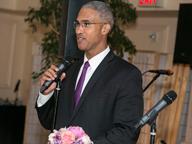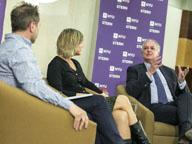Faculty News
—
In an op-ed, Professor Arun Sundararajan explores what Uber and Lyft's exit from the Austin, Texas market means for the future of regulation in the sharing economy
—

Excerpt from Fortune -- "Governments should view Uber and Lyft as friends, not enemies. As I argue in my book ‘The Sharing Economy,’ society’s interests are served well when governments partner with platforms in the creation and enforcement of regulation rather than treating them as its target."
Faculty News
—

Excerpt from Fortune -- "Governments should view Uber and Lyft as friends, not enemies. As I argue in my book ‘The Sharing Economy,’ society’s interests are served well when governments partner with platforms in the creation and enforcement of regulation rather than treating them as its target."



















